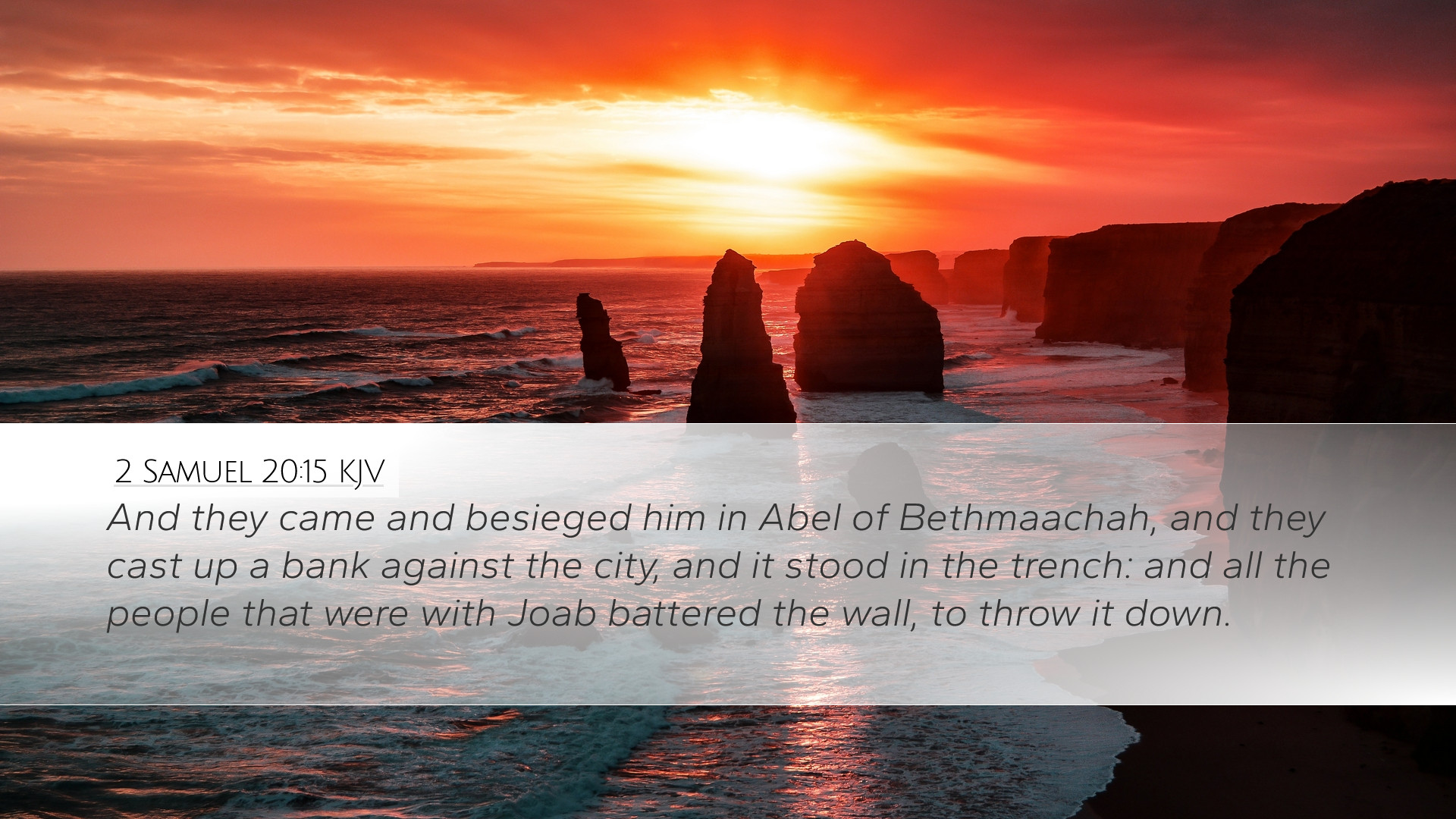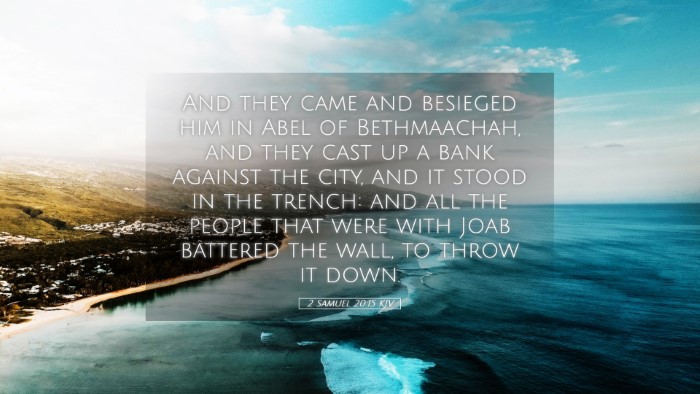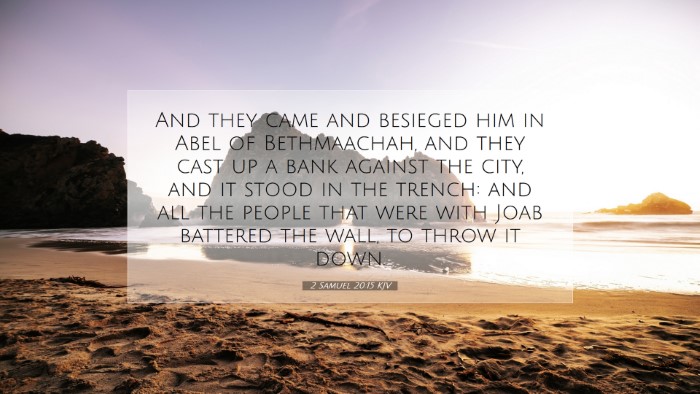Commentary on 2 Samuel 20:15
2 Samuel 20:15 states: "And they came and besieged him in Abel of Beth-maachah, and all the people that were with Joab battered the wall to throw it down." This verse encapsulates a moment of military conflict and political intrigue during the reign of King David. The following commentary draws insights from various public domain sources including Matthew Henry, Albert Barnes, and Adam Clarke.
Contextual Understanding
The context of 2 Samuel 20 centers around the rebellion led by Sheba, son of Bichri, against King David. Following the death of Absalom, David had reinstated order, yet discontent brewed among the tribes of Israel. Sheba's rebellion represented a fracture in unity which Joab, the commander of David's army, sought to quell.
Significance of Abel of Beth-maachah
Abel of Beth-maachah is noted as a city known for its wisdom and as a place where the people could effectively defend themselves. Matthew Henry emphasizes that this city was then viewed as a bastion of security against external threats, yet now found itself embroiled in internal discord. The phrase "besieged him" indicates the precarious position of the city and its inhabitants.
Joab’s Strategy
Joab’s military tactics as described in this verse showcase the aggressive posturing of a general dealing with insurrection. Albert Barnes points out that the actions of Joab reflect a blend of determination and ruthlessness. His battering of the wall can be interpreted as a desperate measure to either force a capitulation or eliminate the threat represented by Sheba, who had taken refuge there.
Theological Implications
This militaristic engagement carries profound theological implications concerning leadership, the consequences of rebellion, and the faithful's response to divine authority. Adam Clarke notes that the rebellion of Sheba and the siege of Abel serve as a metaphor for the overarching struggle between rebellion against divine authority and the restoration of order under God’s chosen leader.
Human Conflict and Divine Sovereignty
The tension illustrated in this verse reflects the reality of human conflict within the sovereignty of God. While Joab executes military power, the outcome remains under God’s control. This reinforces the notion that God permits human actions to fulfill His divine plans, even amidst chaos and disorder.
Lessons on Wisdom and Leadership
The situation in Abel of Beth-maachah presents several lessons for leaders and those in positions of authority:
- The Importance of Wise Counsel: The city's history as a place of wisdom highlights the necessity for leaders to seek counsel and guidance, particularly in times of crisis.
- Responsibility of Leaders: Leaders like Joab represent both strength and the potential for unchecked aggression; therefore, wisdom must govern decisions aimed at restoration or conflict resolution.
- The Need for Unity: The threat of civil unrest can be likened to the need for unity within the church today, as divisions can weaken the collective witness and effectiveness of God’s people.
Historical and Cultural Context
Understanding the historical context of the time enhances the interpretation of this passage. The individuals involved were part of a complex societal structure where loyalty and rebellion played crucial roles. The tension between the tribes of Israel and Judah also underscores the fragility of unity in God's chosen nation.
Political Intrigues of the Time
This era in Israel's history was marked by political intrigues and shifts in power dynamics. The animosity stemming from previous divisions (as seen in Absalom's revolt) illustrates how past events influence current conflicts, a timeless reality that leaders should heed in their endeavors.
Applications for Today’s Church
In reflecting upon 2 Samuel 20:15, modern readers can extract a wealth of applicable insights:
- Responding to Rebellion: Just as Joab was tasked with handling rebellion, church leaders today must address division within the body of Christ with courage and discernment.
- Seeking Peace: The narrative pushes the faithful to prioritize reconciliation and peace-making over conflict, echoing the teachings of Jesus regarding unity among His followers.
- Divine Dependence: Ultimately, this verse serves as a reminder that while human efforts are significant, reliance on God’s sovereignty is paramount in overcoming challenges, both corporate and personal.
Conclusion
The account in 2 Samuel 20:15 is more than just a historical record; it is a narrative rich with spiritual lessons concerning authority, unity, conflict, and the sovereignty of God. As pastors, students, theologians, and Bible scholars engage with this text, there is an opportunity to draw connections between ancient circumstances and contemporary issues in the church and society at large.


